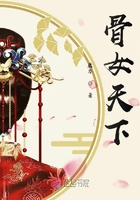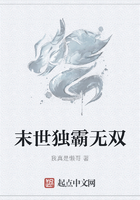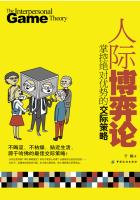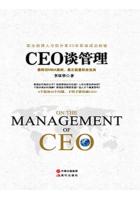On entering a village, we proceeded, as all strangers do, at once to the Boalo:mats of split reeds or bamboo were usually spread for us to sit on.Our guides then told the men who might be there, who we were, whence we had come, whither we wanted to go, and what were our objects.This information was duly carried to the chief, who, if a sensible man, came at once; but, if he happened to be timid and suspicious, waited until he had used divination, and his warriors had time to come in from outlying hamlets.When he makes his appearance, all the people begin to clap their hands in unison, and continue doing so till he sits down opposite to us.His counsellors take their places beside him.He makes a remark or two, and is then silent for a few seconds.Our guides then sit down in front of the chief and his counsellors, and both parties lean forward, looking earnestly at each other; the chief repeats a word, such as "Ambuiatu"(our Father, or master)--or "moio" (life), and all clap their hands.
Another word is followed by two claps, a third by still more clapping, when each touches the ground with both hands placed together.Then all rise and lean forward with measured clap, and sit down again with clap, clap, clap, fainter, and still fainter, till the last dies away, or is brought to an end by a smart loud clap from the chief.They keep perfect time in this species of court etiquette.Our guides now tell the chief, often in blank verse, all they have already told his people, with the addition perhaps of their own suspicions of the visitors.He asks some questions, and then converses with us through the guides.Direct communication between the chief and the head of the stranger party is not customary.In approaching they often ask who is the spokesman, and the spokesman of the chief addresses the person indicated exclusively.There is no lack of punctilious good manners.The accustomed presents are exchanged with civil ceremoniousness; until our men, wearied and hungry, call out, "English do not buy slaves, they buy food," and then the people bring meal, maize, fowls, batatas, yams, beans, beer, for sale.
The Manganja are an industrious race; and in addition to working in iron, cotton, and basket-******, they cultivate the soil extensively.
All the people of a village turn out to labour in the fields.It is no uncommon thing to see men, women, and children hard at work, with the baby lying close by beneath a shady bush.When a new piece of woodland is to be cleared, they proceed exactly as farmers do in America.The trees are cut down with their little axes of soft native iron; trunks and branches are piled up and burnt, and the ashes spread on the soil.The corn is planted among the standing stumps which are left to rot.If grass land is to be brought under cultivation, as much tall grass as the labourer can conveniently lay hold of is collected together and tied into a knot.He then strikes his hoe round the tufts to sever the roots, and leaving all standing, proceeds until the whole ground assumes the appearance of a field covered with little shocks of corn in harvest.A short time before the rains begin, these grass shocks are collected in small heaps, covered with earth, and burnt, the ashes and burnt soil being used to fertilize the ground.Large crops of the mapira, or Egyptian dura (Holcus sorghum), are raised, with millet, beans, and ground-nuts;
Also patches of yams, rice, pumpkins, cucumbers, cassava, sweet potatoes, tobacco, and hemp, or bang (Cannabis setiva).Maize is grown all the year round.Cotton is cultivated at almost every village.Three varieties of cotton have been found in the country, namely, two foreign and one native.The "tonje manga," or foreign cotton, the name showing that it has been introduced, is of excellent quality, and considered at Manchester to be nearly equal to the best New Orleans.It is perennial, but requires replanting once in three years.A considerable amount of this variety is grown in the Upper and Lower Shire valleys.Every family of any importance owns a cotton patch which, from the entire absence of weeds, seemed to be carefully cultivated.Most were small, none seen on this journey exceeding half an acre; but on the former trip some were observed of more than twice that size.
The "tonje cadja," or indigenous cotton, is of shorter staple, and feels in the hand like wool.This kind has to be planted every season in the highlands; yet, because it makes stronger cloth, many of the people prefer it to the foreign cotton; the third variety is not found here.It was remarked to a number of men near the Shire Lakelet, a little further on towards Nyassa, "You should plant plenty of cotton, and probably the English will come and buy it.""Truly,"
Replied a far-travelled Babisa trader to his fellows, "the country is full of cotton, and if these people come to buy they will enrich us."
Our own observation on the cotton cultivated convinced us that this was no empty flourish, but a fact.Everywhere we met with it, and scarcely ever entered a village without finding a number of men cleaning, spinning, and weaving.It is first carefully separated from the seed by the fingers, or by an iron roller, on a little block of wood, and rove out into long soft bands without twist.Then it receives its first twist on the spindle, and becomes about the thickness of coarse candlewick; after being taken off and wound into a large ball, it is given the final hard twist, and spun into a firm cop on the spindle again:all the processes being painfully slow.















